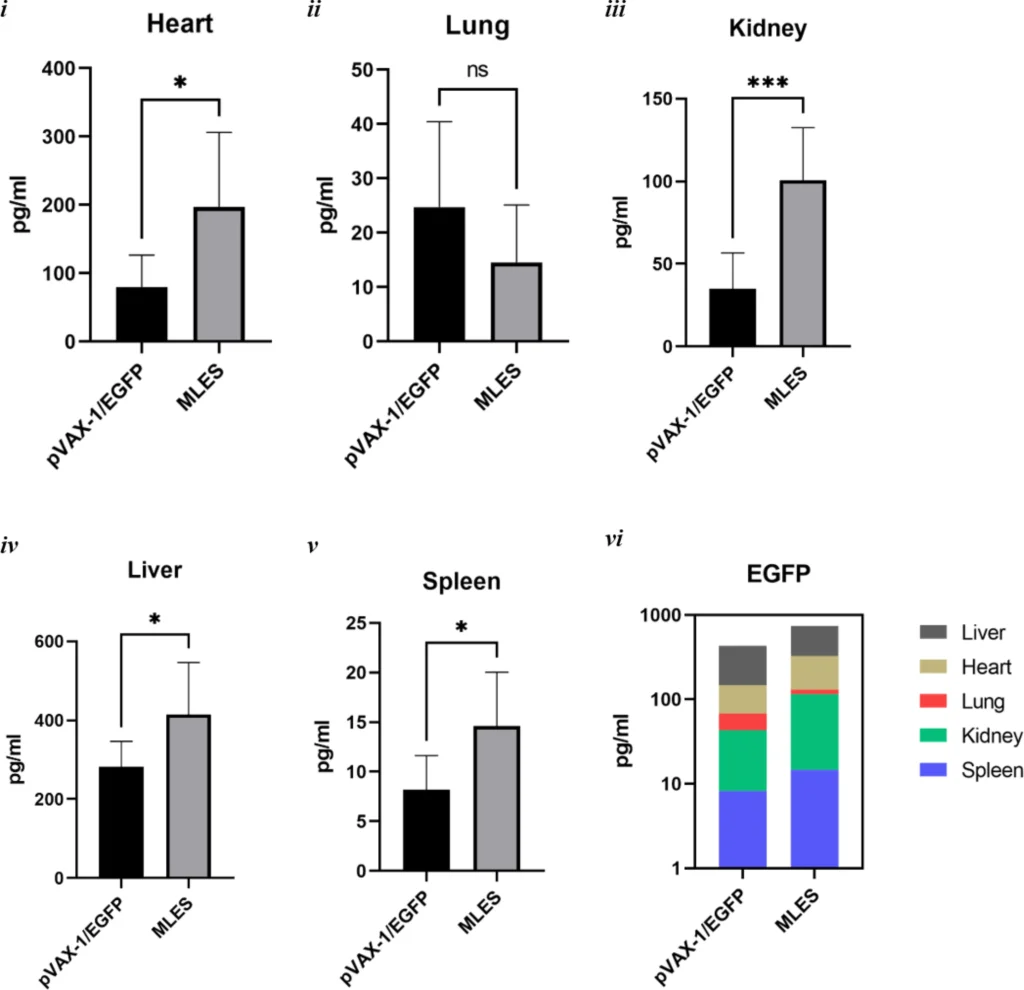Construction of pVAX-1-based linear covalently closed vector with improved transgene expression


Abstract – Introduction: This study presents a Mammalian Linear Expression System (MLES), a linear covalently closed (LCC) vector based on pVAX-1. The purpose of this system was to improve gene expression in mammalian cells and to test the efficacy of MLES in transient transfection and transgene expression using in vitro and in vivo models. Additionally, we aimed to evaluate potential inflammatory responses in vivo. Materials and methods: MLES was developed by modifying pVAX-1, and the construct was confirmed by gel electrophoresis. Lipofectamine®2000 was used to assess the transfection efficiency and expression of MLES in various cell lines. In vivo studies were conducted in mice injected with MLES/EGFP, and the resulting transfection efficiency, gene expression, and inflammatory responses were analyzed. Results: MLES exhibited higher transfection efficiency and expression levels compared to pVAX-1 when tested on HEK-293, CHO-K1, and NIH-3T3 cells. When tested in vivo, MLES/EGFP showed elevated expression in the heart, kidney, liver, and spleen compared with pVAX-1/EGFP. Minimal changes are observed in the lungs. Additionally, MLES induced a reduced inflammatory response in mice compared with pVAX-1/EGFP. Conclusions: MLES offer improved transfection efficiency and reduced inflammation, representing a significant advancement in gene therapy and recombinant protein production. Further research on MLES-mediated gene expression and immune modulation will enhance gene therapy strategies.
Cite: Vijayakumar KK, Manoharan D, Subbarayan R, Shrestha R, Harshavardhan S. Construction of pVAX-1-based linear covalently closed vector with improved transgene expression. Mol Biol Rep. 2024 Aug 24;51(1):934. PMID: 39180671.